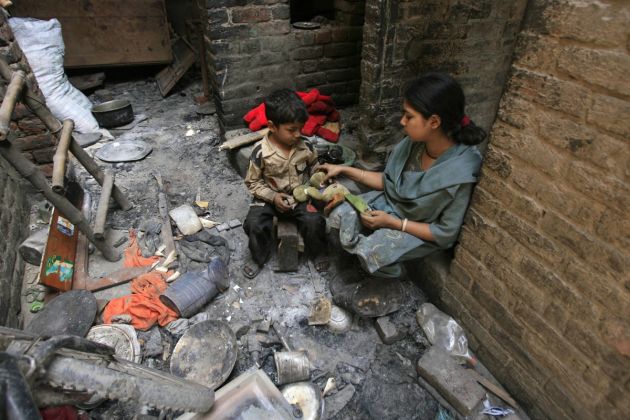Churches head denounces use of blasphemy in Pakistan disputes

Geneva - The head of World Council of Churches has condemned attacks on Pakistani Christians near Lahore after more than a hundred houses were burned down following allegations of blasphemy.
"We share the pain of hundreds of innocent families who have become victims of atrocious acts, and we deplore such actions," said WCC general secretary, Rev. Olav Fykse Tveit in a statement on Tuesday.
His condemnation came in a letter of support to the National Councill of Churches in Pakistanafter about 3,000 Muslims stormed Christian churches, torched buildings and burned Bibles in the Christian neighborhood of Badami Bagh near the country's second largest city on Saturday.
Christians in Lahore protested the attacks which according to some reports were sparked after an argument between a Christian and a Muslim and then an accusation of blasphemy against the Christian.
"We view this targeting of Christians within the context of Pakistan's harsh blasphemy laws, frequently used to persecute religious minorities or settle personal disputes," he said.
Tveit implied that these incidents were part of the series of attacks against Pakistan's Christian minority, who has often been victimized by the blasphemy laws.
The WCC head said that "Pakistan's federal and provincial authorities should take a firm decision to undertake actions that introduce effective law enforcement mechanisms to protect all religious minorities."
He assured the churches of "continuous prayers and solidarity with the Christians of the Badami Bagh community in Lahore" noting that he had visited Lahore one year ago.
Pakistan's blasphemy laws carry severe penalties and incidents around them periodically trigger violent confrontations between the Sunni Muslim majority and the Christian, Shi-ite Muslim and other minorities.
The United Nations' top expert on religion and belief on March 6 called on countries to repeal blasphemy and apostasy laws that can lead to persecution and severe punishment in some countries.
"States should repeal any criminal law provisions that penalize apostasy, blasphemy and proselytism, as they may prevent persons belonging to religious or belief minorities from fully enjoying their freedom of religion or belief," the U.N.'s special rapporteur on religion and belief Heiner Bielefeldt said in his yearly report to the Human Rights Council.
In September 2012 participants at WCC-sponsored hearing on the misuse of Pakistan's blasphemy laws urged the Pakistani government to "take realistic and solid steps to stop abuse of the blasphemy law that are causing massive human rights violations."
"Tinkering with procedural amendments has not delivered; it has failed to mitigate extremely sad consequences of a law that is inherently susceptible to abuse," the multi-faith group, represnted by both Christians and Muslims said in a communiqué after their meeting.
The communiqué was issued at the end of a three-day public hearing on "Misuse of blasphemy law and religious minorities in Pakistan" organized by the WCC's Commission of the Churches on International Affairs from 17 to 19 September in Geneva, Switzerland.